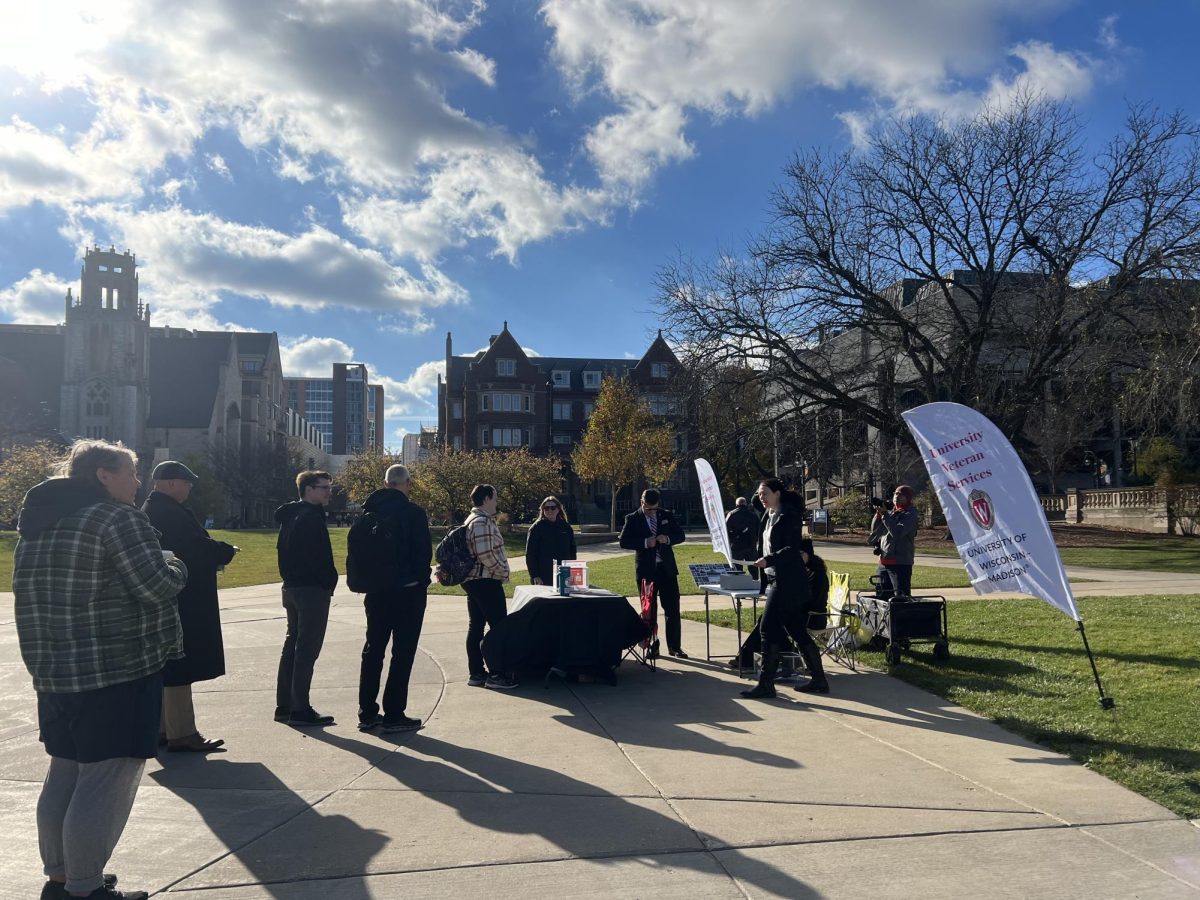In light of the upcoming presidential election, two top economic advisers joined students and community members on the University of Wisconsin campus yesterday to debate current economic issues and raise voter awareness about today’s economic reality.
Douglas Holtz-Eakin, former John McCain economic campaign adviser, and Jeffrey Liebman, current economic adviser to President Barack Obama, spoke on key economic issues affecting voters this term.
Holtz-Eakin said the core economic issue in America today is the need for better macroeconomic growth, much of which could come with a small, efficient government.
According to Holtz-Eakin, such efficiency comes with the continuation of funding to core functions, such as the military and education, and cuts to transfer programs, which he said “suck up the money” of the government.
These programs account for so much of the government’s money that they are beginning to take over programs and investments America needs, Holtz-Eakin said, adding such unnecessarily funded programs are “crushing” the investments in research, infrastructure, education and national security.
“There is no plan to control the deficit,” Holtz-Eakin said. “(Obama’s) budgets don’t put any effort in controlling deficits. That plan is not there and that’s dangerous. We are letting our past crush our future and there is no place to fix that, and that is a dangerous place to be.”
According to Liebman, however, presidential candidate and former Massachusetts Gov. Mitt Romney, R-Mass., plans to increase military expenditures and lower taxes in a manner that would lead to a “massive deficit.”
Liebman emphasized the importance of a balance between increased revenue and spending cuts and a decrease in the deficit, which he said can be accomplished through Obama’s plan to cut dependence on foreign oil, end the war in Iraq and push for educational progress.
Holtz-Eakin, who also spoke of the “unfairness” of Obamacare, said under Obama’s health care plan, young working citizens are forced to pay money into a system which benefits those who are much older and sicker than them.
According to Holtz-Eakin, the current system is not sustainable in the long run. When this generation is in need of these benefits, they will no longer exist, he said.
However, Liebman, who said he disagreed with Holtz-Eakin on Obamacare, stressed the need to reform the health care payment organization in order to lead to a more efficient and higher quality system of health care.
Liebman, who focused on the previous successes of the Obama administration, said the American economy was doing well.
“After the worst economic downturn in generations, our economy is moving forward again,” Liebman said. “We’ve had 31 consecutive months with private sector job growth, the unemployment rate has come down from 10 percent to 7.8 percent and the 1.2 percent drop in the last year is the fastest drop in the unemployment rate in 15 years.”
Holtz-Eakin, however, said the president is not the aggressive and strong leader America currently needs, adding the country ultimately needs a “different style of leadership.”
“There was a time when presidents of the United States said this is what I want, this is what I need, and they drafted legislation and they sent it to the Hill, and by doing so, they did something wonderful for Congress,” Holtz-Eakin said.
Despite disagreement in policy, both panelists said they agreed on the importance of citizens being informed on such economic issues, especially in order to make an educated decision with the approaching election.












